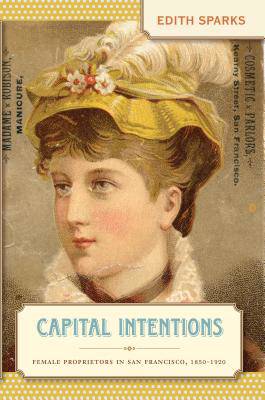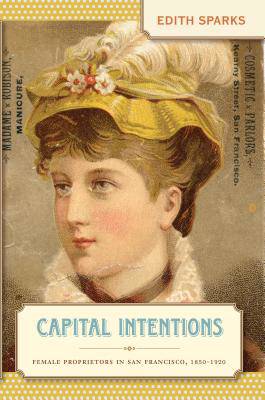
- Afhalen na 1 uur in een winkel met voorraad
- Gratis thuislevering in België vanaf € 30
- Ruim aanbod met 7 miljoen producten
- Afhalen na 1 uur in een winkel met voorraad
- Gratis thuislevering in België vanaf € 30
- Ruim aanbod met 7 miljoen producten
Zoeken
Omschrijving
Late nineteenth-century San Francisco was an ethnically diverse but male-dominated society bustling from a rowdy gold rush, earthquakes, and explosive economic growth. Within this booming marketplace, some women stepped beyond their roles as wives, caregivers, and homemakers to start businesses that combined family concerns with money-making activities. Edith Sparks traces the experiences of these women entrepreneurs, exploring who they were, why they started businesses, how they attracted customers and managed finances, and how they dealt with failure.
Using a unique sample of bankruptcy records, credit reports, advertisements, city directories, census reports, and other sources, Sparks argues that women were competitive, economic actors, strategizing how best to capitalize on their skills in the marketplace. Their boardinghouses, restaurants, saloons, beauty shops, laundries, and clothing stores dotted the city's landscape. By the early twentieth century, however, technological advances, new preferences for name-brand goods, and competition from large-scale retailers constricted opportunities for women entrepreneurs at the same time that new opportunities for women with families drew them into other occupations. Sparks's analysis demonstrates that these businesswomen were intimately tied to the fortunes of the city over its first seventy years.
Using a unique sample of bankruptcy records, credit reports, advertisements, city directories, census reports, and other sources, Sparks argues that women were competitive, economic actors, strategizing how best to capitalize on their skills in the marketplace. Their boardinghouses, restaurants, saloons, beauty shops, laundries, and clothing stores dotted the city's landscape. By the early twentieth century, however, technological advances, new preferences for name-brand goods, and competition from large-scale retailers constricted opportunities for women entrepreneurs at the same time that new opportunities for women with families drew them into other occupations. Sparks's analysis demonstrates that these businesswomen were intimately tied to the fortunes of the city over its first seventy years.
Specificaties
Betrokkenen
- Auteur(s):
- Uitgeverij:
Inhoud
- Aantal bladzijden:
- 352
- Taal:
- Engels
- Reeks:
Eigenschappen
- Productcode (EAN):
- 9780807857755
- Verschijningsdatum:
- 27/11/2006
- Uitvoering:
- Paperback
- Formaat:
- Trade paperback (VS)
- Afmetingen:
- 163 mm x 235 mm
- Gewicht:
- 521 g

Alleen bij Standaard Boekhandel
+ 92 punten op je klantenkaart van Standaard Boekhandel
Beoordelingen
We publiceren alleen reviews die voldoen aan de voorwaarden voor reviews. Bekijk onze voorwaarden voor reviews.











